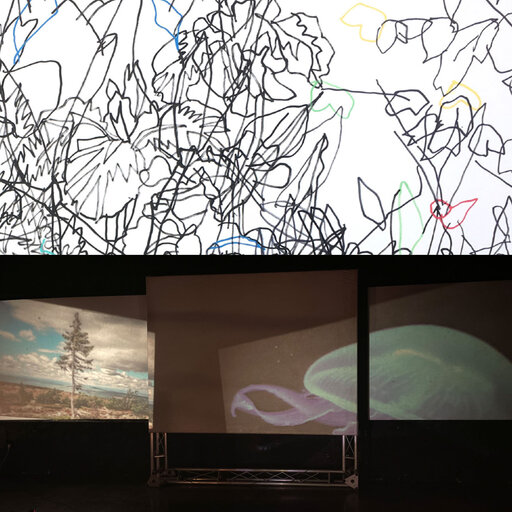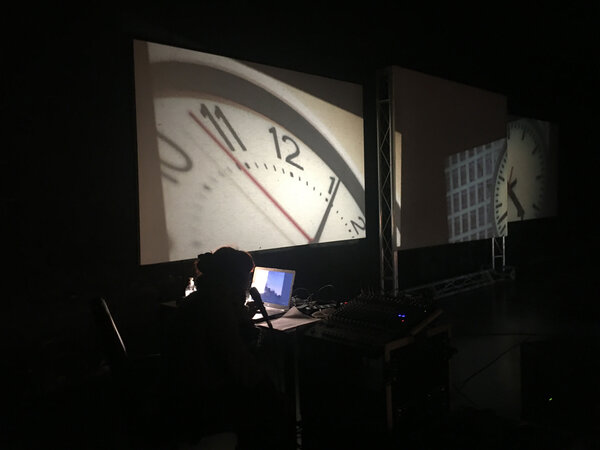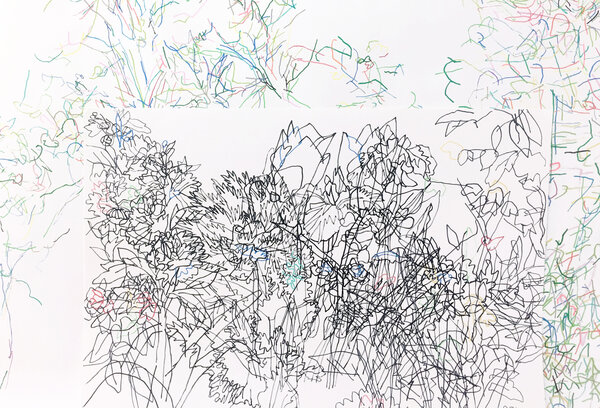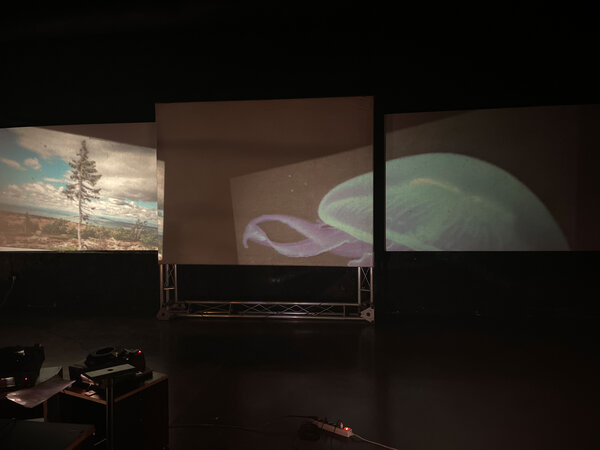
temps al bosc (time in the forest)
gemma parís i rosa llop
In his "Essay on Time" (2021), Rüdiger Safranski talks about how the social homogenization of time through clocks and time slots has turned time into a social institution that guides our behavior and sends us the constant message that time is in short supply. But in reality, time cannot be scarce. It is not an inherent property. Time can only become scarce when we commodify it and turn it into a commodity that we can give away, share, save, sell and squander in more or less profitable ways. This phenomenon of time scarcity is greatly reinforced by the capitalist, anthropocentric and accelerationist logic where the important thing is to make a quick profit on invested capital. Acceleration is also detrimental to the individual's perception of fulfillment. Accelerated people feel that too much is asked of us and we are exhausted. We consume and participate in a life that happens in simultaneous episodes, losing the symbolic and spiritual capital granted by the elaborate and slow experiences that connect us to life, and totally disconnected from the natural cycles of our habitat.
With this project, both artists want to question the acceleration of time, contrasting it with the extensive and cyclical experience of time in the landscape, where nothing is urgent or forever and ever. Understanding that time is a social construction and that, therefore, it can be conceptualized in different ways, they want to search in the temporalities offered by the biodiversity of the forest for evidence on how to live the passage of time in a more sustainable, imprecise and connected way.
The research begins with several drifts where a careful observation and catalogue of the temporalities present in the forest will be carried out, looking for evidence of how nature represents time in the environment of Can Balasc. This catalogue will serve to set in motion collective thinking actions with children and people who work in cinematic, artistic and educational environments where accelerated life is questioned, making visible different ways of making life pass from a more sustainable and respectful perspective and inviting the participants to hybridize the representations of time and look for new ones.
The methodology of the project will be transdisciplinary and collective, using a generative research practice called Entrepensar. This methodology explores non-discursive languages as a situated way to generate knowledge. In Temps al bosc these spaces of collective thinking will be based on different drawing strategies as a way of thinking.
Finally, the research will be formalized as an atlas of possible temporalities that opens the door to perceive time as something infinite that admits all possibilities.
related activities
time in the forest. a biodiverse atlas of possible instants
friday 5 may 2023
10:00h - Can Balasc Biological Station, Barcelona
As a culmination of the project developed by Rosa Llop and Gemma París thanks to the "call for research projects ECOTONOS" of La Escocesa and CREAF-UAB, we invite you next Friday 5th May to a "entrepensar action" in Can Balasc, where scientists and artists will inhabit the forest to think about ways of conceptualizing time through the body and drawing.
Read all the information here
about the artists
Rosa Llop's artistic practice responds to the need to question the constructs that delimit and pre-define the role of design. Her work uses research as a strategy to observe contemporaneity, paying special attention to the systematization of creative processes and the politics of representation.
Her main research is the study of the agency of co-creation practices as a tool for exploring the problem space. Under this question she has developed a methodological toolbox called Entrepensar, understanding the actions of Entrepensamiento as a situated tool to explore, understand and question reality collectively, generating knowledge through the use of artistic languages. The development of the Entrepensar methodology has obtained the following institutional support: OSIC Grant for research and innovation in the fields of arts and innovation 2020 and 2022 and Barcelona Crea 2022 Grant, ICUB. Rosa Llop is currently a resident artist in Hangar in the framework of the program Espacios C mediated by ICUB, the Consorci d'Educació and the Universitat Autònoma de Barcelona.
Has developed projects that have been exhibited in art centers, museums and galleries such as: Ca Framis, Fundació Vila Casas; Museu del Disseny DHUB, Barcelona; Centre Art Contemporani CAC, Màlaga; Centre d'Art La Panera, Lleida; Cercle Belles arts, Injuve, Madrid; Ca Felipa, Barcelona; Museu d'Art Modern, Tarragona; Fondation Avicenne, Paris; Fira MiArt, Milan; Alzueta Gallery, Barcelona; Esther Montoriol Gallery, Barcelona; Luis Adelantado Gallery, València.
She has been awarded several grants: OSIC revolta i Innovació Arts visuals grant, Generalitat de Catalunya; Painting grant, Ministry of Culture, Paris; displaçament Artistes Visuals grant, Institut Ramon Llull; postdoctoral grant, Ministry of Education and Culture, Regne Unit; Predoctoral grant, Universitat Autònoma de Mèxic.
She has done residencies with international artists at Taller de Pintura Juan Uslé, Fundació Botí, Santander; Workshop Mounir Fatmi, Hangar; RIAA residency with Hasper i Jacoby, l'Argentina.
Her recent research has focused on the strategies of relationship, resilience and growth of the plant world, inviting the public to plau themselves in spaces of aesthetic resistance through drawing.
Her career is also developed in the educational field within the Faculty of Education, where she develops innovation and research projects between the educational and artistic fields. She has been awarded the Els Mòniques, Centre d'Art Santa Mònica grant for artistic research and experimentation.


Gemma París (2021), I wish I was a mountain

Rosa Llop (2021), Entrepensar
